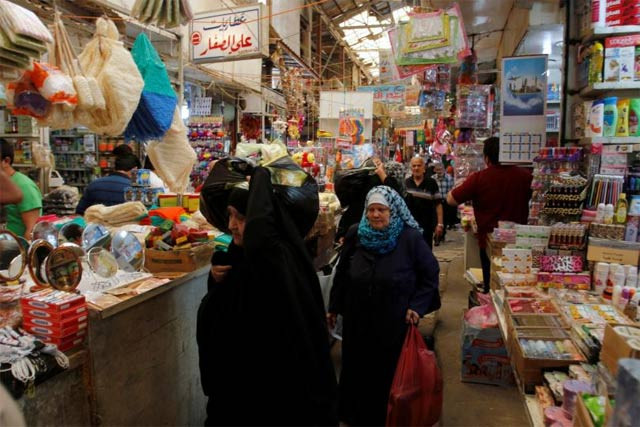Muslim-owned businesses and the issues they face
Extraordinary scrutiny has severely hit some companies, need to address this issue

Extraordinary scrutiny has severely hit some companies, need to address this issue. PHOTO: REUTERS
In fact, the Muslim-owned businesses in the West are severely hit as a consequence of the tight financial scrutiny of anything that is associated with Muslims. While it is a known fact that Islamic charities have faced huge scrutiny and tightening of rules governing their fund-raising and operations, not much has been written about the businesses owned by Muslims.
Petrol stations owned by Muslim family remove alcohol from shelves
Examples of loss, both potential and actual, inflicted on Muslim-owned businesses abound. Last week a Muslim-owned business in London faced a crisis-like situation when its bank decided to reject funds remitted by a well-known financial institution in Saudi Arabia. Apparently, the client in Saudi Arabia made a payment through its bank by way of a wire transfer to the account of the London-based business.
The bank of the London-based business informed the account holder of receipt of funds through a standard text message service. However, later on, the bank in question unilaterally decided to reject the funds to the remitting institution in Saudi Arabia, without even bothering to inform its client in London.
Once the London-based Muslim-owned business came to know of the absence of funds in its account, it tried to seek clarification from its bank, which is a high-street bank in the UK. The bank staff claimed that there were no records of such a transaction and the flow of funds. The business was asked to advise its client in Saudi Arabia to remit the funds again.
The desperate business, therefore, requested its client in Saudi Arabia to transfer the funds again. However, the Saudi client was reluctant to do so because they thought that there was nothing wrong in the transaction that they made in the first instance and that if they did it again the fate of the transaction would not be different.
Halal makeup: Muslim beauty without the beast
This instance was consistent with many other such cases where the UK banks will either block transactions without giving any reasons to their clients. Apparently, this is happening with Muslim-owned businesses only. This is certainly an example of the Muslim Penalty that exists in the Western businesses at large. This is explained in a research paper entitled “Is ethnicity or religion more important in explaining inequalities in the labour market?” written by two Oxford sociologists with another expert from the Department for Children, Schools and Families (published by Department of Sociology, University of Oxford).
Because of the rise of Islamophobia in the wake of the acts of terrorism in Europe, Muslim-owned businesses are facing distress. While the banks refute any allegations of discrimination on the basis of faith, colour or ethnicity, there is a definite problem, either created by some specific individuals (particularly in the powerful compliance departments) or by undisclosed policies to disadvantage Muslims by way of tighter scrutiny of transactions.
This type of discrimination is the worst. While defacing Muslim-owned businesses with graffiti, and firebombing Muslim shops and places of worship are acts of terrorism, disadvantaging Muslim-owned businesses through financial institutions like banks has the most demoralising effect.
British brands eye growing Muslim consumer market
If not probed and ameliorated, this type of malpractice is bound to increase social tension and ethnic friction. There is a need to bring the required transparency in banking and finance to stop harassment of Muslim-owned businesses. The businesses that have been adversely affected by such practices and undisclosed policies of banks should speak out to create awareness of the problem. Keeping quiet is certainly not helpful.
As a number of Muslim-owned businesses are owned by the British Pakistanis, this adversity is bound to affect remittances to Pakistan. The Pakistan High Commission in Pakistan should set up a task force comprising Muslim businesses and other professionals to conduct an independent inquiry to be submitted to the British government. At least this will convey the concerns of Pakistani Muslims to the British government and other concerned bodies.
The writer is an economist with PhD from the University of Cambridge
Published in The Express Tribune, August 1st, 2016.
Like Business on Facebook, follow @TribuneBiz on Twitter to stay informed and join in the conversation.



















COMMENTS
Comments are moderated and generally will be posted if they are on-topic and not abusive.
For more information, please see our Comments FAQ